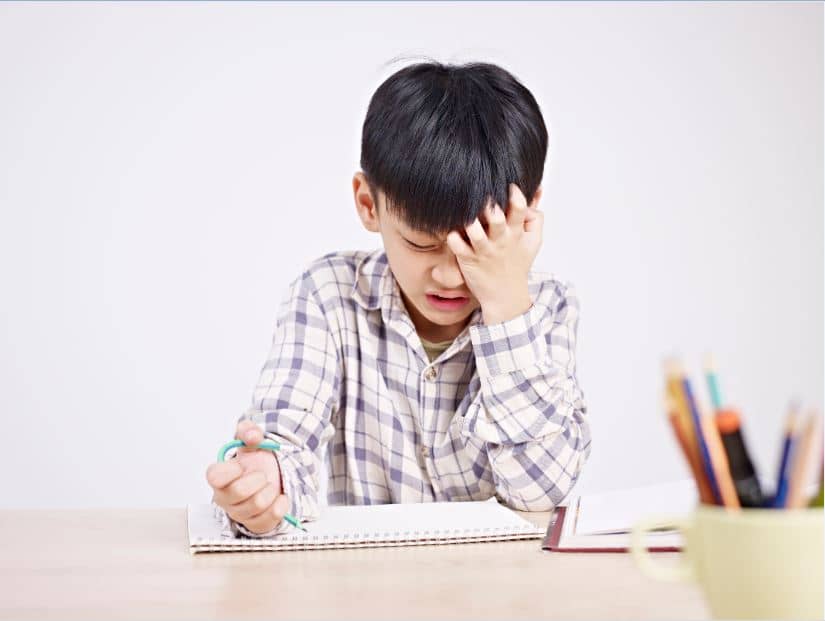
While being one of the most highly regarded in the world, the education system in Singapore is also considered very stressful – especially for younger students.
Admittedly, there are plenty of reasons for that, starting from an intense curriculum to students having a lot of homework and having to cope with high expectations from teachers, parents, and society in general.
Huge focus on education causing too much stress on young kids?
Nobody would deny that there is a huge focus on education in our country. If you simply walk through the city streets, you’ll see lots of ads promoting all manners of home tuition in Singapore.
If you enter a bookshop, you’ll find a good half of it occupied by study guides and assessment manuals. If you ask a primary school student how much time they spend on extra classes, it would likely be more than 10 hours per week.
The better you do at school, the more successful you’ll be in the future. This is what Singaporean kids get to realize very early.
The stress of knowing that one’s future depends on nothing else but one’s school grades can put overwhelming pressure on young adolescents as young as 6-years-old.
What young students have to say about their stress
While there are many opinions on this matter, nothing illustrates the point better than what young students have to say about stress in their daily school life.
Earlier this year, CNA Insider created a short video showing a regular day of an ordinary Primary 6 student preparing for PSLE.
Amelia Ow Yong, the girl who’s being interviewed, talks about her after school routine and reveals that she spends about 15 hours a week on extra classes. Although that’s quite a lot, it’s not what stresses the girl out in the first place.
Amelia says that a lot of tension is coming from high expectations: teachers keep giving students assessment tests and expect their results to get higher every time, parents want their kids to be the best, friends become very competitive due to a desire to do better than their peers.
Children start to think that if they don’t pass their exams well enough, they will disappoint someone or even get punished for that.
Obviously, Amelia is not alone in this opinion. Another CNA Insider’s video created almost at the same time reveals how children feel about PSLE.
One of the interviewed girls called Leia says that she feels scared about the examination as it determines which secondary school she will go to and what her parents will think about it.
She says, “if I go to a bad school my parents would probably scold me.”
Even though PSLE might be the most important thing for those in primary school, it is not the only exam that makes students worried.
In one of the Kids Talk with Minister videos created by MOE Singapore, Bing Xuan, another Primary 6 student, admits that every examination makes him anxious and stressed as he’s always afraid of the results. Most of the kids agree.
Moving towards a less stressful environment for our kids
Being aware of the problem, the Singaporean government is said to be taking certain steps to solve it. As an example, in five years from now, the current PSLE scoring system is going to be replaced with the new one that is supposed to be less stressful. However, some would argue that the new system might just make things worse.
Still, we can take some actions of our own. The most important thing is moving away from an overemphasis on academic results. Let our kids understand that a bad test result is not the end of the world.
Parents should try to engage their young kids in other activities apart from studying, preferably the ones that would be good for their health like different sports.
Another way to reduce stress is to engage professional tutors to help out when your child is struggling mightily in a subject. For instance, if your child is struggling with Chinese, maybe he or she can benefit from 1-to-1 Chinese tuition after all. Just don’t overdo it!
In summary, whilst education is indeed very important, maintaining a healthy level of stress is imperative. In the long run, what parents should really aim for is making their children interested in learning new things and building their confidence and faith in themselves. This will help them grow up and become useful, successful adults and not just become bookworms.
